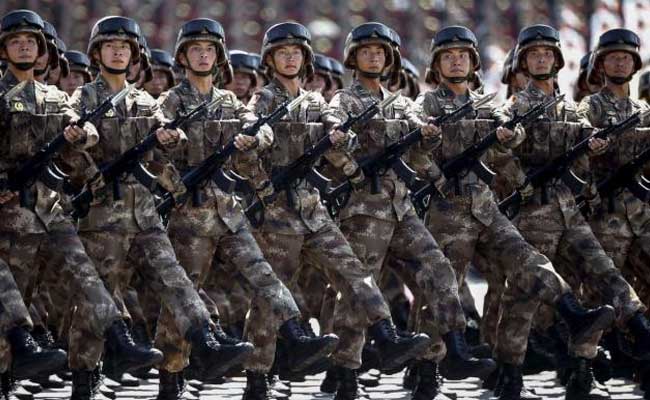India and China today said that they have ended the more than two-month-long confrontation between their armies at the border in Sikkim - though statements from both countries suggested differences in how the resolution has been achieved.
India, which has refused to be baited by daily and aggressive rhetoric from China since the trouble began in June, said that the truce was achieved through diplomatic talks. A statement from the Foreign Ministry suggested that both sides were withdrawing troops from the remote mountainous Doklam Plateau, which both Bhutan and China say is their own.
India has backed Bhutan's claim in the dispute and said that its troops crossed the border at Sikkim to stop the China from constructing a new road near the plateau that would give it access to India's north-eastern states.
"In recent weeks, India and China have maintained diplomatic communication in respect of the incident at Doklam," the Foreign Ministry said. "On this basis, expeditious disengagement of border personnel at the face-off site at Doklam has been agreed to and is on-going."
But China quickly stressed that it was Indian soldiers alone who were withdrawing from the plateau located in the Eastern Himalayas.
Chinese foreign ministry spokeswoman Hua Chunying said Chinese troops would continue to patrol the Doklam region. "China will continue to exercise sovereignty rights to protect territorial sovereignty in accordance with the rules of the historical boundary," she said.

Senior government sources told NDTV that in back-channel talks, both sides had agreed to disengage troops. Earlier this month, Foreign Minister Sushma Swaraj told parliament that India was pushing for both sides to pull back their soldiers while continuing dialogue. China, however, insisted on a unilateral withdrawal by India. Opposition leaders today sought clarity from the government on what exactly had transpired.
The ending of the conflict comes weeks ahead of Prime Minister Narendra Modi's visit to China for a meeting of top leaders of the group of nations that are called BRICS - Brazil, Russia, India, China and South Africa.
The area is claimed by both China and Bhutan. The tiny Himalayan kingdom has no diplomatic relations with China and says it asked India to stop what it sees as an incursion by Beijing.
China furiously stated that it was building a road on its own terrain, and India had "illegally transgressed" the border at Sikkim.
Once Indian soldiers crossed into Doklam on June 15, Chinese soldiers moved to confront them and the two sides have since maintained 300 troops standing, guns down, about 300 metres apart.
Indian military sources said that troops have begun moving out but the withdrawal will not be completed today. They also said that India's primary concern had been not to stop Chinese patrols but prevent the new road which would give Beijing access to the "Chicken's Neck" - a strategic wedge between India and north-eastern states like Sikkim.
Share This Post















